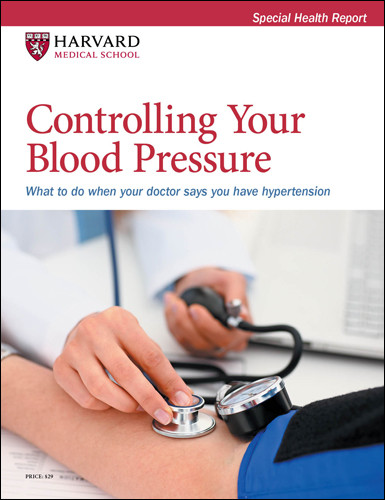Are salt substitutes a smart choice?
Ask the doctor

Q. I have high blood pressure and I'm trying to lower my sodium intake. Should I consider a salt substitute with potassium in it?
A. The short answer is yes. Research shows that substituting a potassium-containing salt substitute for regular salt can help lower blood pressure as well as the risk of stroke. But you should also pay attention to the sodium content of any food items you eat regularly and add more potassium-rich fruits and vegetables to your diet.
For decades, population-based studies have observed links between high sodium and high blood pressure. In particular, diets high in sodium but low in potassium are known to raise blood pressure and increase the risk of cardiovascular disease (including stroke) and early death. Given these data, researchers have sought ways to help people lower their sodium intake.
One thing I do routinely and recommend to my patients is to look carefully at food labels at the grocery store. It's amazing how much sodium some foods contain. (Of note: the American Heart Association recommends getting no more than 2,300 milligrams [mg] of sodium per day in your diet and ideally closer to 1,500 mg daily.) Processed meats and many canned soups are notoriously salty, but many other products are high in sodium, including some breads, frozen dinners, and condiments. The amounts can vary quite a bit between brands. For example, the sodium in a serving of salsa can range from 6% of the daily recommended amount to more than 20%.
Another strategy is to swap regular table salt for a salt substitute that replaces some of the sodium chloride with potassium chloride. Several years ago, researchers recruited nearly 21,000 adults from rural villages in China and gave half of them a salt substitute that contained 25% potassium chloride. The others were told to keep using regular salt. Their average age was 65; most had high blood pressure, and 73% had already experienced a stroke. After a follow-up of nearly five years, rates of strokes, major heart-related problems, and deaths were slightly lower among the people using the salt substitutes. Importantly, those people were not more likely to have elevated potassium levels (a potentially worrisome side effect). Earlier this year, a new analysis published in JAMA Cardiology that focused only on those participants with a prior stroke reaffirmed these results.
At your next trip to the grocery store, check out the salt substitutes, which are often labeled as "lite" or low sodium. Some contain 100% potassium chloride with no sodium, which some people say has a slightly bitter or metallic aftertaste. It's also a good idea to add some potassium-rich produce to your shopping cart, such as spinach, sweet potatoes, cantaloupe, bananas, and avocado.
Image: © Aleksandr Zubkov/Getty Images
About the Author

Christopher P. Cannon, MD, Editor in Chief, Harvard Heart Letter; Editorial Advisory Board Member, Harvard Health Publishing
Disclaimer:
As a service to our readers, Harvard Health Publishing provides access to our library of archived content. Please note the date of last review or update on all articles.
No content on this site, regardless of date, should ever be used as a substitute for direct medical advice from your doctor or other qualified clinician.
















